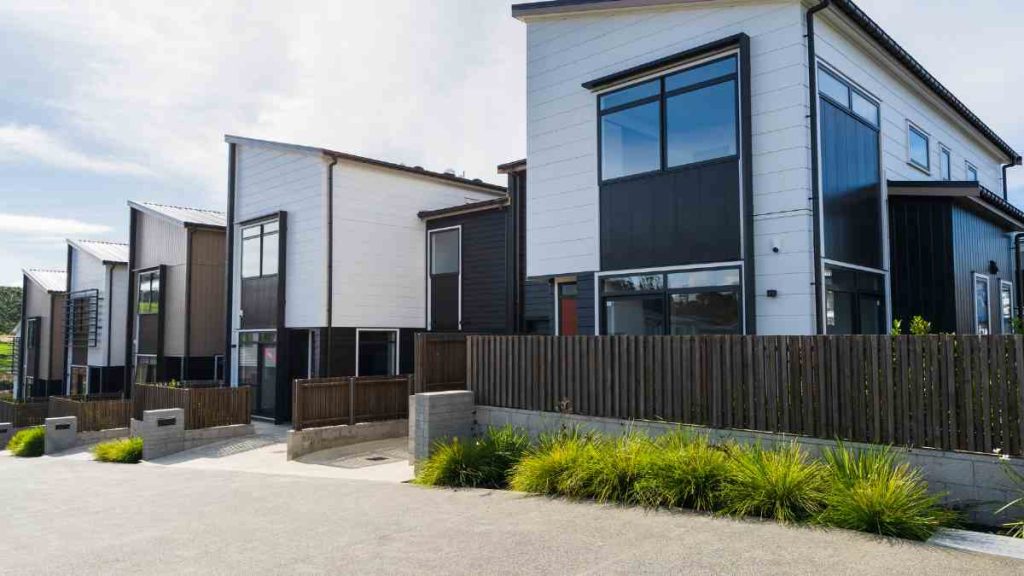Venture Capital in Africa: The New Frontier for Smart Investors

Investors around the world are turning their attention to a rapidly growing opportunity: venture capital in Africa. With a booming population, fast-growing digital markets, and increasing demand for scalable solutions, Africa is emerging as the perfect environment for transformative investments. But beyond the hype, what exactly makes venture capital (VC) a smart move on the continent? In this article, we explore why Africa is becoming a global investment hotspot, what sectors are worth paying attention to and how smart investors can maximise returns responsibly. Why Venture Capital in Africa Is Growing Rapidly Several forces are shaping Africa into an attractive VC destination. First, the continent has the world’s youngest population, with over 400 million people under 35 driving innovation and digital adoption at unprecedented speed. The rise of fintech, health tech, agritech, and climate tech is evidence of this shift. Additionally, governments and private ecosystems are building more infrastructure for businesses to scale. From startup hubs like Nigeria’s Yaba Valley to Kenya’s Silicon Savannah, entrepreneurship is no longer fringe. It is mainstream. High-Growth Sectors Driving VC Interest Investing in venture capital thrives on innovation, scalability, and market demand. In Africa, four sectors continue to dominate the opportunity landscape: 1. Fintech Fintech remains the fastest-growing sector on the continent. With millions of people still underbanked or unbanked, digital payment platforms, lending solutions, and savings apps are meeting critical financial needs. 2. Agriculture & Agritech Agriculture is not just a food source; it’s a trillion-dollar market. Agritech startups are transforming how farmers access credit, seeds, equipment, and export markets, unlocking massive value. 3. Health Tech Health tech startups are solving deep systemic issues: poor access to healthcare, inadequate data and high treatment costs. Telemedicine and AI-powered solutions are bridging gaps. 4. Climate & Clean Energy From solar solutions to waste recycling innovations, climate-focused startups are attracting significant funding because of their impact and scalability. Why Smart Investors Should Pay Attention What makes venture capital in Africa truly attractive is its combination of high-growth potential and untapped markets. Unlike saturated global ecosystems, Africa’s startup landscape is still forming, offering early investors room to shape markets ,not just participate in them. In addition, tech adoption continues to rise. Smartphone penetration, internet access, and mobile transactions are growing yearly, giving startups massive reach without heavy infrastructure costs. Smart investors see Africa not as a risky experiment but as a long-term wealth-building frontier. How to Invest Responsibly in African Venture Capital While opportunities abound, smart VC investment requires expertise, due diligence, and strategic support. Investors must look beyond product ideas and assess: Responsible venture capital is not just about funding startups, it’s about building ecosystems that last. Conclusion Africa is not the future; it is the present. The momentum around venture capital in Africa proves that innovation here is not only thriving but also worth serious investment attention. Smart investors who move early, build responsibly, and support scalable solutions will not just make a profit; they will shape the continent’s economic direction. Ready to Plan Your Investment Strategy?A great investment begins with a solid plan. Book an investment planning session today and start your journey into venture capital with expert guidance.
Top Low-Risk Investments in Africa Before 2025 Ends

As 2025 wraps up slowly, many Africans are rethinking how and where to invest. With global uncertainty, rising inflation, and currency fluctuations, the smartest investors are seeking low-risk investment opportunities in Africa that preserve capital and deliver steady growth. If your goal is to secure your money before the year ends, here are five safe and proven investment options you can explore right now. 1. Treasury Bills and Government Bonds When it comes to safety and predictability, Treasury Bills (T-Bills) and Government Bonds remain unmatched. They are backed by African governments and provide fixed returns, a reliable choice in an unpredictable economy. In markets like Nigeria, Kenya, and Ghana, T-Bills offer annualized yields ranging from 15% to 22%, depending on maturity and inflation rates. They are short-term (typically 90 to 364 days), making them perfect for investors who want quick liquidity before 2026. 2. Money Market Funds (MMFs) Money Market Funds are an excellent option for those who want stability without locking up their funds. MMFs invest in low-risk instruments like Treasury Bills and bank placements, offering consistent returns and easy access to cash. Across Africa, MMFs are managed by reputable firms such as Stanbic IBTC, Old Mutual, and Sanlam, with yields typically between 10% and 18%. For investors planning to restructure their portfolios before year-end, MMFs are an ideal holding space for idle funds while still earning returns. 3. Cooperative and Contribution Investments Across Africa, cooperative and contribution models are transforming how people invest. These group-based systems allow members to pool funds for joint investments from real estate to fixed-income products, while benefiting from shared expertise and accountability. This model is especially powerful for Africans who want to reduce risk and invest collectively before 2026. It offers structure, transparency, and the potential for higher yields than individual efforts. 4. Real Estate Income Funds Real estate remains one of Africa’s most resilient asset classes but not everyone can afford to buy property outright. Real Estate Investment Trusts (REITs) and real estate income funds offer a way to invest in property indirectly, earning returns through rent and appreciation. Markets like South Africa, Nigeria, and Morocco have established REIT frameworks, allowing retail investors to gain exposure to commercial, residential, and industrial assets with lower entry barriers. 5. Dividend-Paying Blue-Chip Stocks If you’re looking for stability with some upside potential, dividend-paying blue-chip stocks are worth considering. Companies like MTN, Safaricom, and Dangote Cement have consistently paid dividends even during economic downturns. These stocks combine steady income with long-term capital appreciation, making them a valuable addition to a low-risk portfolio for 2025. Building a Low-Risk Strategy Before 2026 Before the year ends, take time to evaluate your portfolio. Combine a mix of Treasury instruments, money market funds, cooperatives, and blue-chip stocks to diversify your risk and strengthen your returns. The goal isn’t to chase hype, it’s to build sustainable wealth that compounds over time. Conclusion 2025 almost over, but it’s not too late to take control of your finances.By focusing on low-risk investment opportunities in Africa, you can secure your capital, earn steady income, and position yourself for greater returns in 2026. Take our free investment course today to learn how to build a low-risk portfolio, understand market trends, and invest confidently before the year ends.
Real Estate vs. Stocks: Where Should Africans Invest in 2025?

The African investment landscape is evolving fast, and investors are asking an important question: What’s the smarter move in 2025: real estate or stocks? Both options have potential, but they come with different risks and rewards. To make the right choice, it’s crucial to understand the dynamics of real estate investment in Africa vs stocks. Real Estate Investment in Africa: The Case for Tangible Assets Real estate has long been a trusted path for wealth creation in Africa. From residential housing to commercial developments, property continues to attract both local and international investors. Pros of Real Estate Investment in Africa Cons of Real Estate Investment in Africa Stocks in Africa: Riding the Growth of Companies Stock markets across Africa are gaining momentum, giving investors access to fast-growing companies across banking, telecoms, fintech, and energy. Pros of Stock Investing Cons of Stock Investing Real Estate Investment in Africa vs Stocks: Which is Better for 2025? The answer depends on your goals: Conclusion When comparing real estate investment in Africa vs stocks, the best choice in 2025 will come down to your risk appetite, financial goals, and investment horizon. Africa offers unique opportunities in both sectors, and with the right strategy, you can build sustainable wealth. Ready to sharpen your investment knowledge? Take our free investment course and learn how to choose the right opportunities for you.
Future-Proof Your Portfolio: Smart Investment Trends in Africa

In today’s fast-changing economy, African investors are becoming more intentional about building wealth that lasts. There are plenty of promising investment opportunities in Africa right now that can help you future-proof your portfolio. Africans are seizing the chance to grow their money in ways that align with global trends and local realities. Let’s explore where the smart money is going. 1. Real Estate Development and Affordable Housing Housing demand in Africa is growing rapidly due to urbanisation and population growth. Smart investors are putting money into affordable housing, student hostels, and commercial spaces. Real estate remains a stable option because land and property tend to appreciate over time, especially in fast-growing cities like Lagos, Nairobi, and Accra. 2. Agriculture and Agribusiness Agriculture has always been Africa’s backbone, but today, investors are looking beyond farming into agritech, food processing, and storage solutions. With millions relying on agriculture and global food demand on the rise, agribusiness continues to offer strong investment opportunities in Africa with relatively lower risk. 3. Renewable Energy Projects With energy shortages across the continent, renewable energy is a booming sector. Solar farms, mini-grids, and clean energy startups are attracting both local and international investors. These projects not only offer good returns but also contribute to solving Africa’s power deficit. 4. Technology and Digital Infrastructure From fintech apps to e-commerce platforms, Africa’s digital economy is growing fast. Investors are tapping into mobile banking, payment solutions, and internet infrastructure. With smartphone penetration on the rise, technology remains one of the most exciting investment opportunities in Africa. 5. Infrastructure Development Governments and private investors are working to close Africa’s infrastructure gap. Roads, railways, ports, and data centres are attracting capital as the continent modernises. Infrastructure projects may take time, but they can yield steady long-term returns. How to Future-Proof Your Portfolio Smart African investors don’t just chase trends; they build diversified portfolios. Here’s how you can get started: Conclusion Africa is full of opportunities, but only those who plan wisely will benefit. By focusing on real estate, agriculture, renewable energy, technology, and infrastructure, you can protect your portfolio against uncertainty and position yourself for long-term success. Take our free investment course and learn how to spot and leverage the best investment opportunities in Africa today.
Diversification Strategies for Africans: How to Grow and Protect Your Wealth

Investing is more than just picking stocks or buying land. For African investors looking to build long-term wealth, one principle stands out: diversification. Simply put, it means spreading your money across different investments so that if one performs poorly, others can help balance things out. With rising inflation, currency fluctuations, and market uncertainties across the continent, smart diversification strategies for Africans have never been more important. Here’s how to make it work for you—step by step. 1. Combine Different Asset Types Don’t put all your money into real estate or stocks. Smart diversification means investing in multiple asset classes—stocks, bonds, real estate, commodities like gold, and even cash. When one asset drops in value (say, stocks), another (like gold or treasury bills) may rise. This balance helps protect your portfolio. 2. Invest Across Different Sectors Africa has a wide range of growing industries: agriculture, tech, energy, healthcare, and more. Don’t bet everything on one.If oil prices drop but the fintech sector is booming, your tech investments could offset the losses. 3. Think Beyond Your Country While it’s tempting to invest only in familiar local opportunities, this can expose you to currency or policy risks. One of the most effective diversification strategies for Africans is to invest regionally or internationally. Use mutual funds or ETFs that hold both African and global assets. This allows you to tap into stable international markets while still supporting African growth. 4. Use Mutual Funds and ETFs for Easy Diversification If you don’t have time to research or manage your portfolio daily, these tools are your best friend. Mutual funds and exchange-traded funds (ETFs) pool money from investors and spread it across various assets, providing instant diversification. 5. Rebalance Your Portfolio Regularly Diversification isn’t a “set it and forget it” strategy. Over time, some investments will grow faster than others, which can throw off your balance. For example, if your stocks grow rapidly, they may make up too much of your portfolio, increasing your risk. Conclusion No matter where you live or how much you’re starting with, applying the right diversification strategies for Africans can help you grow and protect your wealth—while staying calm during market swings. You don’t need millions to get started. You just need a plan. Take our free investment course and learn how to build a smart, diversified portfolio designed for African investors.
Top Investment Opportunities in Africa for 2025

Africa is poised for accelerated economic growth in 2025, driven by its youthful population, digital innovation, improved infrastructure, and rising foreign direct investment. From renewable energy to agribusiness, the continent offers numerous high-yield opportunities for both local and international investors. If you’re looking to tap into Africa’s investment potential, this article highlights the top sectors to watch—and how to get involved. Why Africa? Home to over 1.4 billion people, Africa has a growing middle class and rapid mobile and internet adoption. Many countries have strengthened governance, upgraded infrastructure, and reformed regulations, making it easier than ever to do business. In 2025, investors aim to: Top Investment Opportunities in Africa for 2025 1. Renewable Energy Over 600 million Africans still lack reliable electricity. Renewable energy isn’t just vital—it’s profitable. Solar, wind, and hydropower projects continue to gain strong government backing and attract foreign capital. 2. Agriculture and Agritech Africa holds 60% of the world’s uncultivated arable land, yet it still imports billions in food each year. Agritech innovations like drone mapping, precision irrigation, and mobile marketplaces are transforming farms and supply chains. 3. Fintech and Digital Banking Fintech remains one of Africa’s fastest-growing sectors. From mobile wallets to cross-border payments, companies are solving real-world problems at scale. 4. Healthcare and Healthtech Africa’s healthcare landscape is going digital, thanks to telemedicine, AI diagnostics, and health logistics platforms. Rising health awareness post-COVID-19 is driving fresh private investments into the sector. 5. Real Estate and Urban Development Cities are expanding rapidly, creating strong demand for housing, commercial properties, and better infrastructure. Mixed-use projects and smart city concepts attract both local and diaspora investors. 6. Education and Edtech Africa’s young population fuels high demand for quality education. Edtech platforms delivering affordable, accessible learning are growing fast. 7. Logistics and E-commerce Infrastructure With online shopping on the rise, logistics firms are expanding warehousing, last-mile delivery, and integrated payment solutions to keep pace with demand. How to Access Africa’s Investment Opportunities Getting started is easier than you might think. Here’s how you can take the first step: Conclusion From clean energy to fintech and real estate, Africa’s investment landscape in 2025 is vast and dynamic. By targeting the right sectors and partnering with trusted experts, investors can earn strong returns while contributing to the continent’s growth. Ready to discover more? Take our free investment course to learn how to evaluate and enter African markets with confidence. For more, read Best Investment Funds for Africans in 2025
Challenges and Opportunities for Real Estate Investment in Africa

Real estate investment in Africa is gaining traction as investors search for high-growth markets beyond traditional territories. With a growing population, rapid urbanization, and increasing demand for housing and commercial infrastructure, Africa offers unique opportunities. However, navigating this landscape also comes with its own set of challenges. In this article, we explore both the hurdles and the high-potential areas that define real estate investment in Africa today. Why Africa Is Attractive for Real Estate Investment Africa’s real estate sector is being reshaped by several powerful trends: 1. Rapid Urbanization According to the United Nations, Africa’s urban population is projected to triple by 2050. This urban shift creates a massive need for housing, commercial spaces, shopping malls, and mixed-use developments. 2. Expanding Middle Class A growing middle class across countries like Nigeria, Kenya, Ghana, and South Africa is driving demand for modern housing, retail centers, and office spaces. This demographic is increasingly seeking quality real estate options. 3. Infrastructure Development Major infrastructure projects—including roads, railways, and airports—are opening up new corridors for real estate development, especially in emerging cities. Key Challenges in Real Estate Investment in Africa While the opportunities are compelling, real estate investment in Africa also comes with complexities. Understanding these can help investors plan effectively. 1. Land Ownership and Legal Hurdles Many African countries have fragmented land registration systems. Land disputes, unclear titles, and slow documentation processes can stall projects or increase legal risk. 2. Limited Access to Financing High interest rates, underdeveloped mortgage markets, and limited access to long-term financing can be barriers for both developers and buyers. 3. Currency and Economic Volatility Exchange rate fluctuations and economic instability in some regions can affect property values and returns, especially for foreign investors. Emerging Trends and Growth Opportunities Despite the challenges, smart investors are finding ways to thrive by aligning with emerging trends: 1. Affordable Housing With a housing deficit of over 50 million units across the continent, affordable housing remains one of the most viable segments. Governments are increasingly supporting public-private partnerships to close this gap. 2. Proptech Innovations Startups are using technology to simplify property search, verification, payments, and property management. These tools are making real estate investment in Africa more transparent and accessible. 3. Green and Sustainable Buildings Eco-conscious developments are gaining traction, particularly in upscale residential and commercial markets. These projects attract high-end buyers and help future-proof investments. Conclusion Real estate investment in Africa is not without risk, but it holds unmatched potential for those who understand the landscape. Successful investors are those who do their homework—partnering with trusted local experts, conducting due diligence, and aligning with long-term trends. As Africa continues to grow and urbanize, the continent is set to become one of the most dynamic real estate frontiers in the world. For savvy investors, now is the time to take a closer look. Also read


